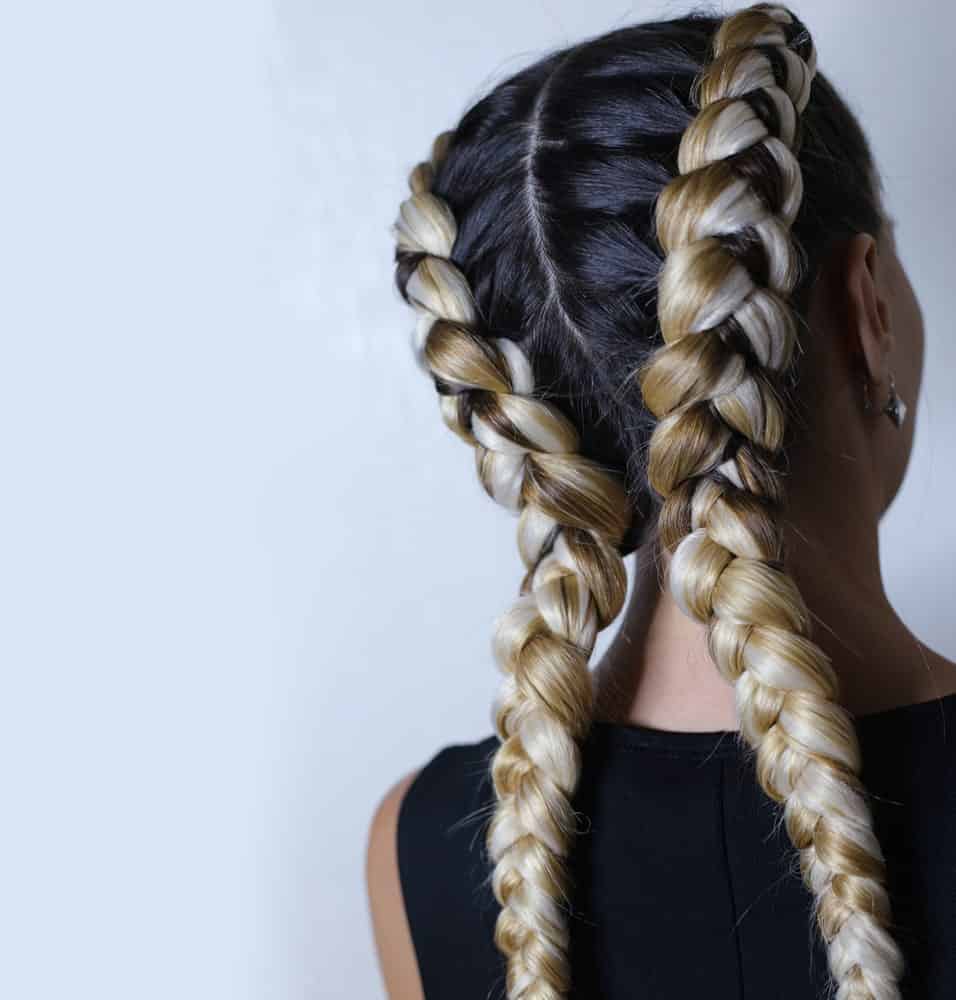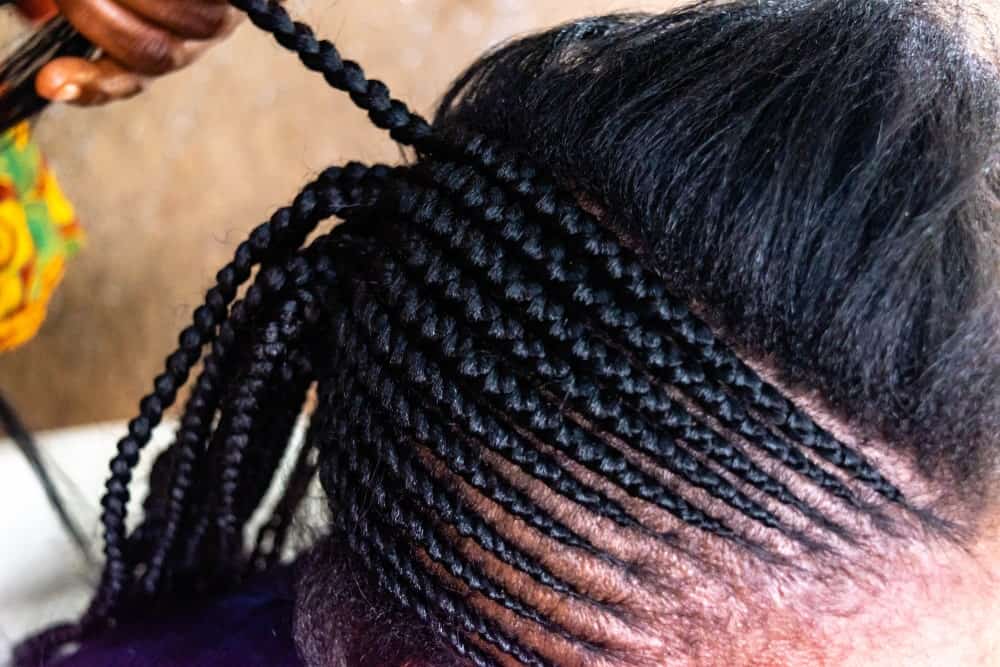Anyone interested in having their hair braided for the first time is going to have some questions. This is understandable. One of the biggest questions we get is, ‘can you braid straight hair?’ The short answer is ‘yes.’ It might take more work and more product to get braids to hold in straight, or in especially fine hair, but it can be done.
Our general advice is if your hair is especially fine or silky, you might be best served by the services of a professional hairdresser. The second big sticking point we see a lot of is folks who want braids but their hair might be too short for the style they are looking for. A general rule of thumb is that unless you like the cornrows style of braid, you may want to let your hair grow out at least four or five inches before braiding it.
That said, here are a few important points about braiding that might help anyone looking to have it done for the first time.
Get to Know Your Prospective Braider
Ideally, you should either go with a professional stylist who has reviews online or go with someone you know personally and trust with your hair. Instagram is a good place to start with lots of hairstylists advertise there. The more good reviews and images of satisfied customers you can find, the better. You’re taking a chance with your hair no matter what. So, there’s no reason to push your luck to the limit.
Know the Style You Want Before Going for Your Appointment
This holds true with any kind of hairstyle. You should always find images of someone who has the style you want and who looks good in it. For one thing, it eliminates any question your stylist might have about precisely what you want.
For another, pictures prove that what you want is possible. It can help if the person in the images you show your stylist looks like you because face shape and skin tone can affect what styles suit you best.
Don’t Follow a Relax Treatment With Braids
Most women over the age of 25 will understand this point of advice right away. Relaxer treatments soften your hair and putting in braids is the physical stress on your hair. That means you run the risk of breakages if you follow a relaxer with braids. Wait at least six to eight weeks to braid after a relaxer.
Avoid Getting Braids too Tight
Of course, if your hair is short or if you are going for cornrows tight braids are unavoidable. The reason we suggest you be wary of tight braids is it can be very uncomfortable depending on your scalp type. It also increases the likelihood that your braids will break. In the worst-case scenario, overly tight braids can even injure your scalp.
Take the Time to Care of Your Braided Hair
A lot of people get full-length braids and then make the mistake of assuming they require no care. This is wrong. You should clean and moisturize your scalp regularly. The alternative can be very unpleasant. A lot of folks use a stocking cap to shampoo their hair. This helps you to avoid disrupting the braids. We think this is a good practice, but it might take some practice and some getting used to.
Take Care When Styling
A lot of people get braids to escape the pressure to style every day. It’s also a good way to let your hair get a break from constant washing, treatments, and styling. However, if you decide to make a major style change to your braided hair, do so with caution. Use care to avoid undoing large sections of braiding. You might end up with a bald patch.
Protect Your Braids During Sleep
Sleep might be great for you, but it’s murder on your braids. You can mash it out of shape or get things stuck in it like lint that can be difficult to get out. Worst of all, you might end up with something unpleasant looking on the back of your head and go out unaware of it. Nobody wants that. Use a bonnet or stocking cap to protect your hair at night.
Know That Braids are Not Forever
A lot of frustration and worry can be avoided if you understand that your hair will grow and change and that your braids are not going to last forever. Possibly the most important thing is to take good care of your braids so that they come out gently and easily, leaving you with valuable experience should you choose to do it again at some point in the future.







